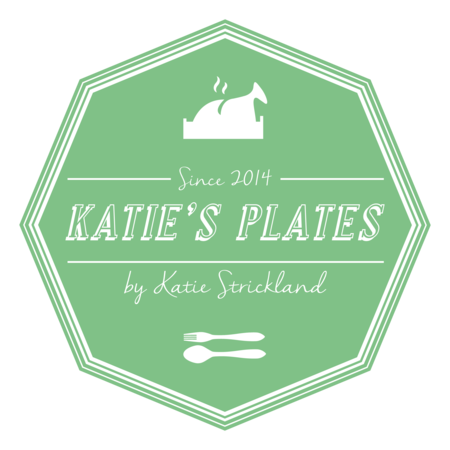
First society demonized fat then carb- and now we have moved on to gluten. Gluten free diets seem to be a major up and growing craze! 86% of Americans claim that they are gluten sensitive which has led most resturants and grocery stores to start accommodating. However, it is proven that only 1% of people are actually wheat sensitive! That means 85% of the people following a gluten/wheat/grain free diet are doing it for no reason. They are falling into the media’s trap that has convinced us that gluten is bad- the cause of weight gain, low energy and inflammation. While gluten may cause this effect in some people, its only very few! Most of us can and should include gluten/wheat/grains in our diets as they provide many important nutrients for the body.
Gluten free products are promoted by society as the “healthier” options compared to the whole grain alternatives. This is so false! Gluten free products are often LESS nutritious as they are made from refined corn, cassava root, potato and nut flours. These refined flours lack many important vitamins and minerals- specifically folate, iron, riboflavin, niacin, magnesium and thiamin- which are present in whole grain products. If you follow a gluten free diet, these nutrients may need to be consumed as dietary supplements along with other vitamins and minerals such as B12, calcium and vitamin D.

 Gluten free items also are very low in fiber which is abundant in whole grains! Fiber is important as it regulates bowel movements, help control blood sugar, maintain satiety and decreases the risk of diseases such as diabetes, heart disease, high blood pressure and many more! Gluten free products do not contain much, if any, fiber, so those on a gluten free diet may need to supplement fiber from other food or supplemental sources. Fiber, as well as all vitamins and minerals, are absorbed better when coming from whole food sources. Supplements should not be used unless absolutely nessacary. If you follow a gluten/wheat/grain free diet, supplements, sadly, may be needed.
Gluten free items also are very low in fiber which is abundant in whole grains! Fiber is important as it regulates bowel movements, help control blood sugar, maintain satiety and decreases the risk of diseases such as diabetes, heart disease, high blood pressure and many more! Gluten free products do not contain much, if any, fiber, so those on a gluten free diet may need to supplement fiber from other food or supplemental sources. Fiber, as well as all vitamins and minerals, are absorbed better when coming from whole food sources. Supplements should not be used unless absolutely nessacary. If you follow a gluten/wheat/grain free diet, supplements, sadly, may be needed.
Gluten free products often also have more calories, fat, sugar and sodium! For example, comparing a serving of gluten free versus regular muffins, cereal, bagels and crackers, we can see that this fact often holds true. Why is it that gluten free items are more calorie, sugar, fat and sodium dense? Because gluten free products are often pumped full of artificial additives to make them palatable for consumers. Companies must add things such as cane sugar oil, xanthan gum, guar gum, corn syrup solids and tapioca syrups to help their products rise and stay intact. None of these ingredients help make gluten free products “healthier” than the whole wheat alternatives- which are often made with much less harmful food additives!

Due to the low fiber and higher sugar content of gluten free products, consumers often report feeling less satisfied following a meal with gluten free products compared the regular item. This causes people to become hungry shortly after meals leading them to eat more later in the day or snack more frequently. Both of these habits will increase one’s overall calorie consumption throughout the day and may impact one’s weight over time. If we compare the appearance of a gluten free versus regular muffin or cookie, we can see just based on their size and color that the regular flour item looks much more filling, appetizing and satisfying!

Aside from the poor nutritional value and unsatisfactory characteristics of gluten free products, they also have a negative effect on your bank account! Gluten free products cost nearly twice as much as the regular. For example, one study showed that eating on a regular meal plan costs on average $90 per week. Eating gluten free, however, costs at least $130! Is it really worth the extra money to buy less satisfying, more processed foods?

If you have a disease or allergy that makes it impossible to consume gluten (such as celiac disease or some forms of irritable bowel disease) then this article does not apply to you! For your body it is actually healthier to eat the gluten free alternative items because the gluten would make you very sick due to your illness or allergy. However, for all people on a gluten free diet for medical or personal reasons, I would advise that rather than focusing on gluten free bread and pasta alternatives, to use whole food items such as rice, oats, beans and fresh potatoes to replace your bread and carb sources! Whole foods fresh from nature, with little processing or additives is always the best choice for ALL people, whether gluten sensitive or not.

Just as regular bread, pasta and cookies can fit into a normal, healthy, balanced diet- the gluten free alternatives can fit into a gluten intolerant person’s diet as well. My point here is, that if you are not sensitive to gluten in your food then please don’t feel the need to take it out! The alternatives are not better for you if your body can process it! If you are sensitive, then for the sake of caring for your own body, please avoid it!
